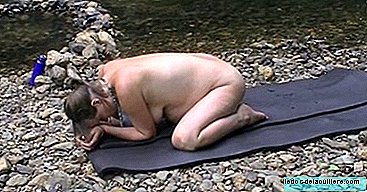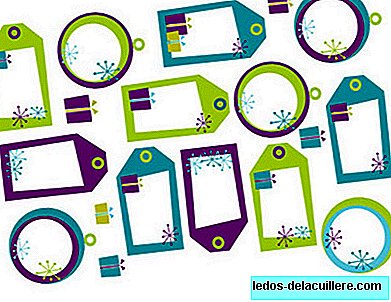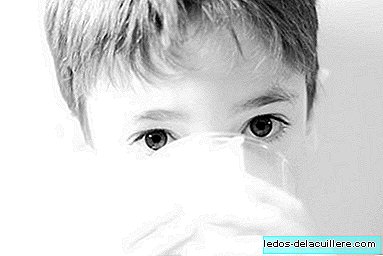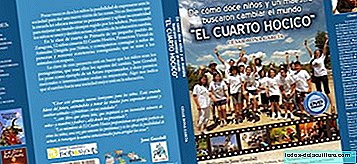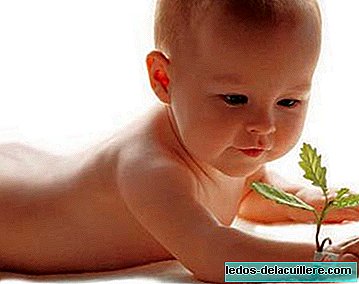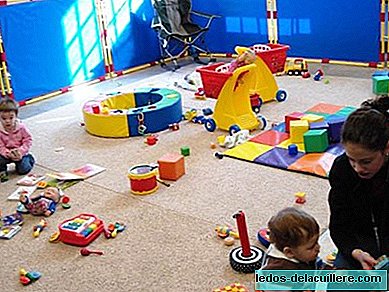
One of the debates that exist around child rearing is that in which It is assessed whether it is better for children to be at home or to go to daycare.
Many parents defend an education at home, with one of the parents during the first years or with the presence of one of the grandparents and many others defend the use of childcare centers as an educational element (used even when one of the parents could take care of of the child) or as a resource to take care of children in the absence of parents.
Faced with this situation, many wonder if they do the right thing, if their choice is better or worse for the psychological and social development of the child, if they are losing contact with mom if they go to daycare or with children if they do not go. To answer these questions (and some more) we will comment on an extensive study that has been done on this subject.
He National Institute of Child Health & Human Development (National Institute of Child Health and Human Development) in the US has followed up with more than 1,000 children since 1991 studying how they have been cared for from the month of life to four and a half years.
In the nursery, more aggressive and less cooperative
A few weeks ago, when we talked about the socialization of children, we commented that children, up to 3-4 years, do not have more or less stable emotional bases and adequate impulse control (and sometimes not even then).
Children who go before that time to a place where there are other children with their same concerns and with conflicting desires ("I want the same as you") tend to look for solutions when they still do not have the capacity and resources to negotiate little aggressive mode.
The study concludes that the children cared for in the nursery were less cooperative and had more behavioral problems (aggressiveness, competitiveness, rebellion, ...) than those who had been taken care of by their parents or other relatives. This was even more evident when the nurseries were of poor quality and worsened when the children spent more hours in them.
However, these data are not entirely conclusive. The important thing, after all, does not have to be where the child is, whether at home or in the nursery, but the treatment he receives.
In a nursery with a human quality close to that offered by a mother and similar care the differences between the children were negligible.

Of course, we must bear in mind that in the US, where the data comes from, the ratio is between 3 and 7 children per caregiver (3 if they are between 6 and 18 months, 4 if they are between 18 and 24 months and 7 if they are between 2 and 3 years old) and in Spain it is between 6 and 12 children per caregiver (6.3 if they are between 0 and 12 months, 9 if they are between 12 and 24 months and 12 if they are between 2 and 3 years old).
The dedication that caregivers can have with children in the US will be different from what children can have in Spain, unfortunately, since a 15-month-old child, for example, will share a caregiver with only 2 children in the US while if he lives in Spain he will be with eight more children.
Mom is the most important
The relationship with the mother is the factor that can most help the emotional, social and intellectual development of a child as can be seen from the study.
It seems that the evolution of the children was better the more sensitive and emotionally stable the mother was, the more attentive and available to the needs she was, with a stable family environment, with a positive personality, with a low level of stress and without symptoms of depression .
In homes where there was a favorable environment, with well-organized routines, with toys and books and where children participated in stimulating activities, both at home and abroad, the children had superior social and intellectual development.
With these data it is concluded that, if there is the possibility of raising our child at home, the warmth, closeness and love of a mother (or father) are irreplaceable and that, as Punset already told us, the first years are very important in the development of a child.
And if there is no economic possibility?
Each family knows its economic reality and its possibilities. Raising a child at home means taking a long leave, reducing hours or stopping work and all this makes the income decrease.

In the event that this decrease in resources cannot be assumed (or not wanted, that the scales of values of the people do not have to be equal) it is possible to look for third parties, usually the grandparents or pay a daycare .
The grandparents are great caregivers, attentive and affectionate, although there are some who, with the increase of the average age in having children, have reached quite advanced ages and this usually affects their capacity and energy.
What if we decided on a nursery?
If parents finally choose daycare for the care of their child the ideal is to look for a quality.
The factors to be observed are the number of children per caregiver (the fewer, the better), the size of the group (that there are not too many children in total) and the preparation of the professional and ability to establish a relationship of trust, positive and stimulating (making questions, listening, answering, singing, telling stories, ...).
The better these factors are, the better the development of a child will be and the more it will resemble the care he could receive from a mother at home.
Let's look at the Nordic countries
Whenever we talk about school periods, school entry age and results, we end up talking about Nordic societies, more advanced than ours and with better school scores.
The reason is that, contrary to the Spanish trend where it is believed that the sooner the children go to daycare or school, the sooner they begin to learn and the more prepared they will be in the future, in northern Europe children are separated from their mothers much later (and that they have a greater presence in the workplace than here) and the academic results are much better than those of our children.

The difference is, to begin with, in social policies. In Spain the objective is to make more and more nurseries for children up to 3 years. In Finland (the country that occupies the first position in the PISA report), mothers can be at home up to three years, receiving a salary from the State, and have the right to return to work in the same position and salary. Up to eight years they can do half a day and the State pays them the other half.
But the difference is not only what the government of each country offers, but also what society expects to be offered. We have commented several times, two or three years ago a collection of signatures was organized to achieve a maternity leave of six months and the minimum signatures were not obtained. If the Spanish State promises more and more childcare, it is because we are well suited to Spanish parents or directly because we are the ones who request this service.
Perhaps we are not understanding what the study conducted in the US explains and we do not realize that, as the system works right now, it is possible that the weakest link in the chain, children, are paying for the lack of time with His parents.
Summarizing
The first years of life of children are of vital importance for their emotional and social development. In order for this evolution to be as favorable as possible, it needs empathic, positive, kind, caring caregivers who are capable of establishing an emotional bond that favors the growth of children.
As a general rule, the best person to raise a child is their mother, father or other family member, although there is a possibility that, in quality nurseries, with few children, with a low ratio of children per caregiver and with professionals capable of generating a relationship similar to that of family members, a development similar to that which could be achieved at home is achieved.
Much has to change our current society, which continues to mistakenly think that children, the sooner they go to learn subjects and content, the better academic results they will get in the future. Hopefully so.


